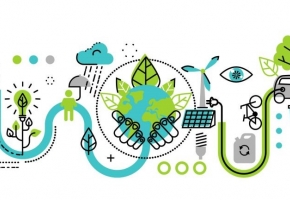Bacterial cellulose used to create new edible packaging material

We may soon be finishing off a box of cereal and then eating the bag it came in. Researchers have turned to bacteria-produced cellulose to create a composite packaging material to replace plastic. The material is not only robust and sustainable to produce, but it’s also biodegradable and, what’s more, edible.
Plastics can take anywhere from 50 to 200 years to decompose, depending on what they’re made from. The use of petroleum-based plastics in packaging has led to significant pollution over the decades, leading to a push to develop more environmentally friendly and sustainable packaging materials.
Bio-derived polymers offer a way of ‘greening up’ single-use packaging. One in particular, bacterial cellulose (BC), has been of particular interest to researchers. An ultra-fine network of cellulose nanofibers synthesized by bacteria, BC has better properties than plant cellulose in its higher water-holding capacity, higher tensile strength, distinctly soft texture and high fiber content.
Now, researchers at the Chinese University of Hong Kong have used BC to create a new composite single-use packaging material that is not only environmentally friendly, but it’s also edible.
Unlike plant cellulose, BC is produced by a process of fermentation, meaning that no trees or crops need to be harvested and no habitats destroyed.
The researchers then embedded soy protein isolated from soybeans into the cellulose structure and coated it with an oil-resistant composite made from calcium alginate. All in all, they say, a relatively simple process.
Source: New Atlas
Image: To Ngai







